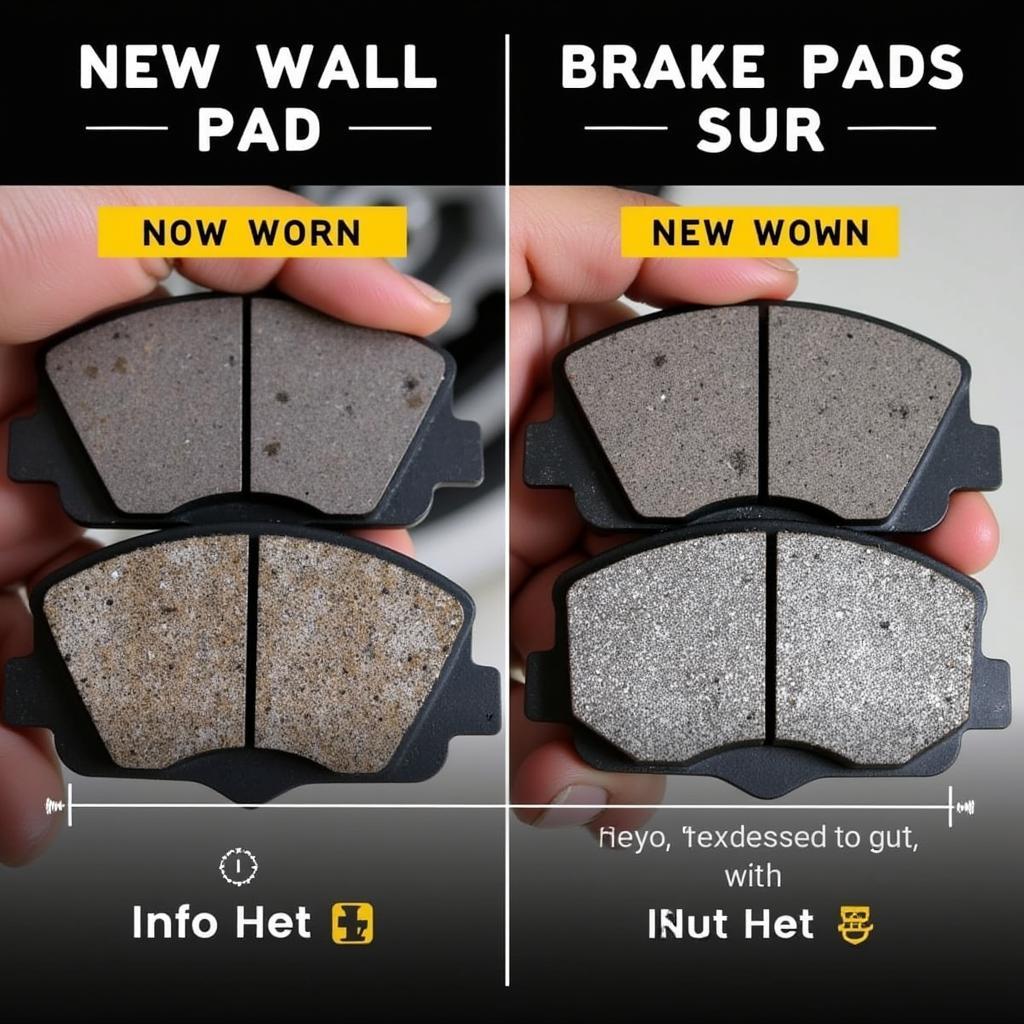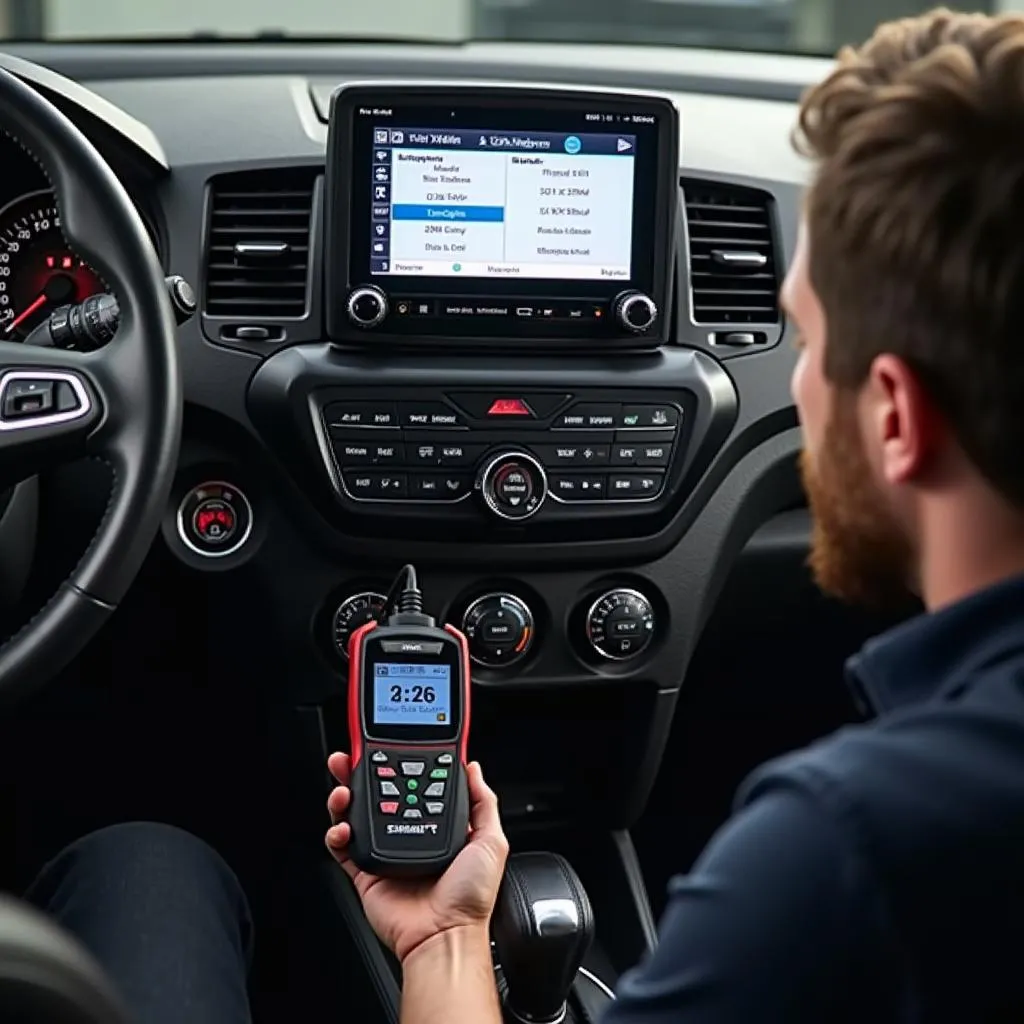The brake warning light on your Buick Lesabre dashboard is a crucial safety feature. When illuminated, it signals a potential issue within your vehicle’s braking system that requires immediate attention. Ignoring this warning light can lead to decreased braking performance and increase the risk of an accident.
This comprehensive guide will delve into the common causes of a Buick Lesabre brake warning light and provide insights into diagnosing and resolving these issues.
Common Causes of a Buick Lesabre Brake Warning Light
Several factors can trigger the brake warning light in your Buick Lesabre. Here are some of the most prevalent culprits:
-
Low Brake Fluid: Brake fluid is the lifeblood of your car’s braking system. It transmits the force applied to the brake pedal to the calipers, which press the brake pads against the rotors to slow down or stop your vehicle. A leak in the brake lines or a worn-out master cylinder can lead to low brake fluid levels, triggering the warning light.
-
Worn Brake Pads: Brake pads are designed to wear down over time. As you apply the brakes, the pads clamp down on the rotors, creating friction to slow or stop your vehicle. Thin brake pads reduce the braking efficiency and can activate the warning light, indicating it’s time for a replacement.
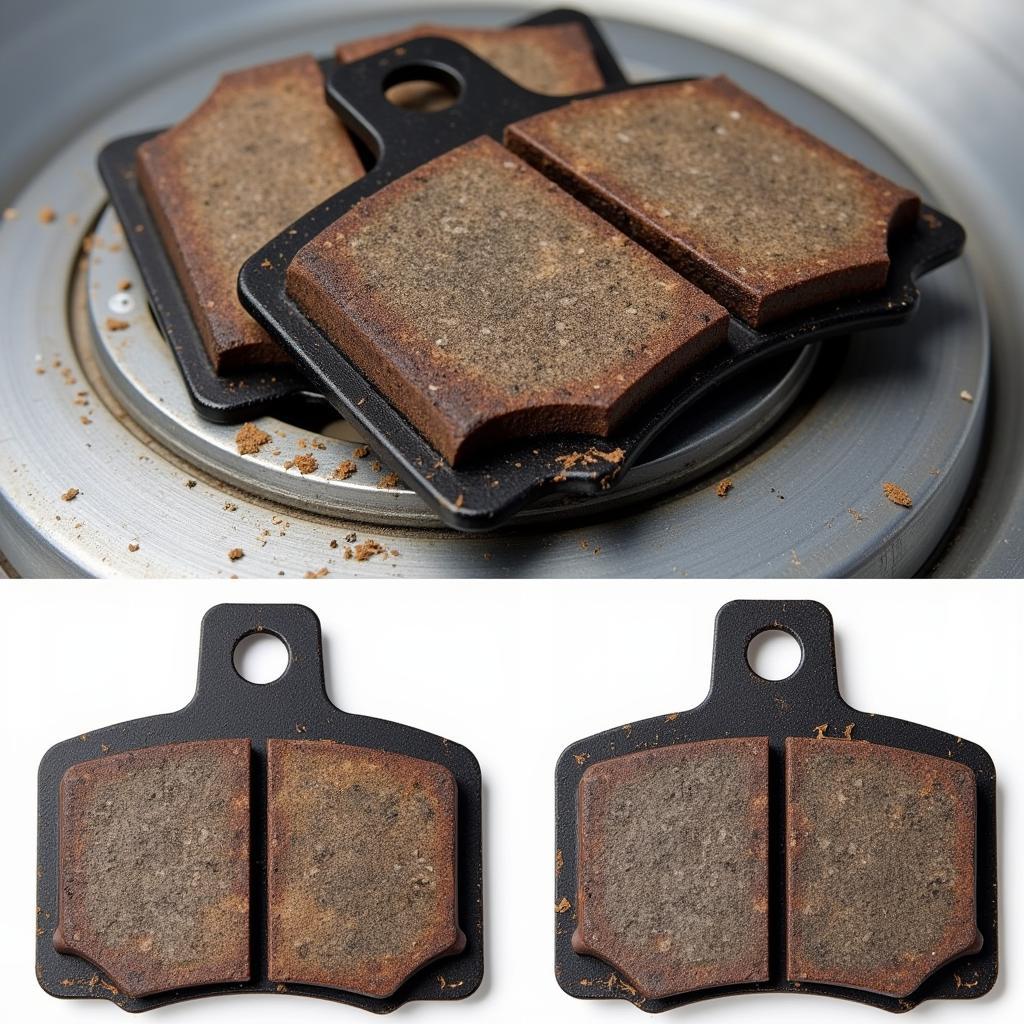 Worn Brake Pads
Worn Brake Pads
-
Faulty Brake Caliper: Brake calipers house the brake pads and pistons. When you press the brake pedal, the caliper clamps the pads against the rotor. A sticking or seized caliper can cause uneven braking, premature brake pad wear, and trigger the warning light.
-
ABS Issue: Modern Buick Lesabres are equipped with an Anti-lock Braking System (ABS). This system prevents wheel lockup during hard braking, enhancing vehicle control. A malfunctioning ABS module, wheel speed sensor, or wiring issue can activate the brake warning light.
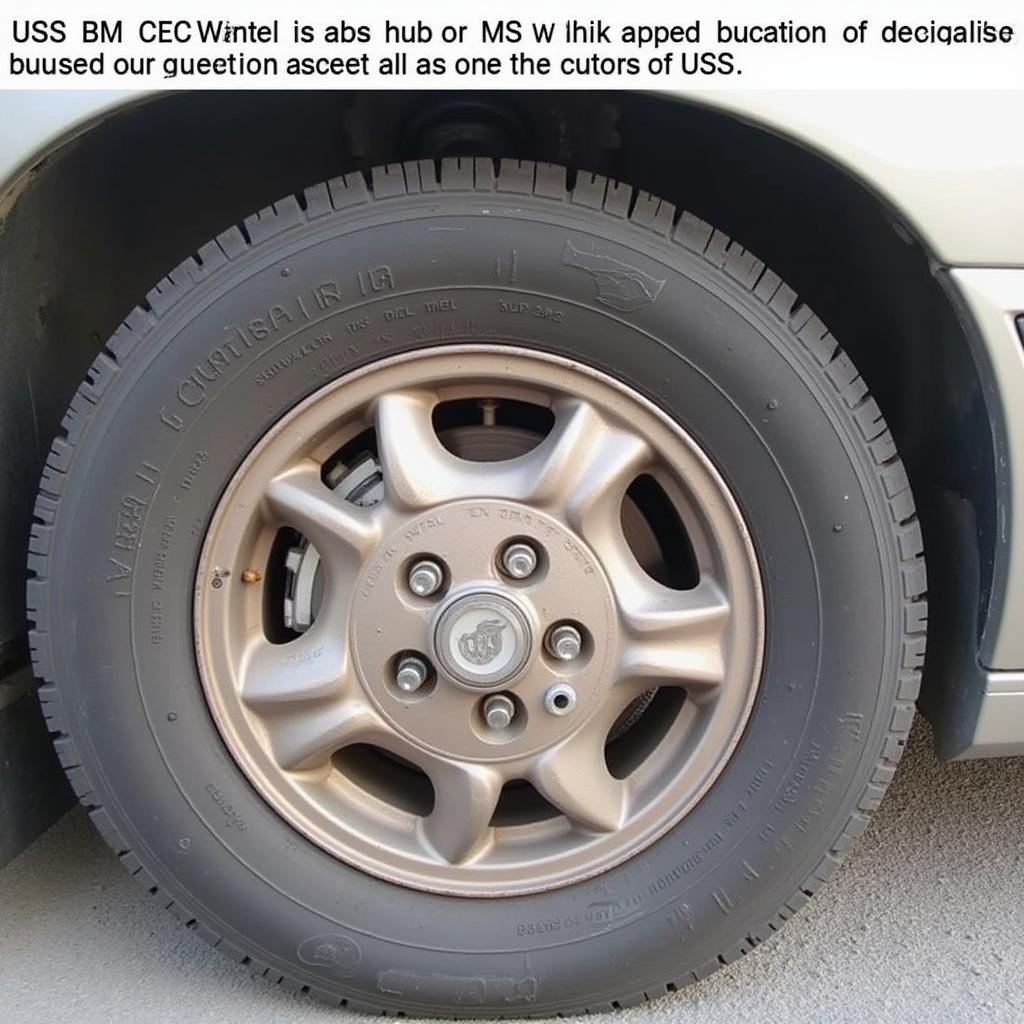 ABS Wheel Speed Sensor
ABS Wheel Speed Sensor
- Parking Brake Engaged: It might seem obvious, but sometimes the simplest explanation is the most likely one. If the parking brake is even slightly engaged, it can trigger the brake warning light.
Diagnosing the Problem
Determining the exact cause of the brake warning light requires some investigative work.
-
Check the Parking Brake: Begin with the basics. Ensure the parking brake is fully disengaged. If the light remains on, move on to the next step.
-
Inspect Brake Fluid Level: Park your Buick Lesabre on a level surface and locate the brake fluid reservoir under the hood. Check the fluid level, which should be between the “Min” and “Max” markings. If the fluid is low, it indicates a leak that needs immediate attention from a qualified mechanic.
-
Visual Inspection: Carefully examine the brake lines, calipers, and brake pads for any visible signs of leaks, damage, or excessive wear. If you notice any abnormalities, it’s best to consult a mechanic.
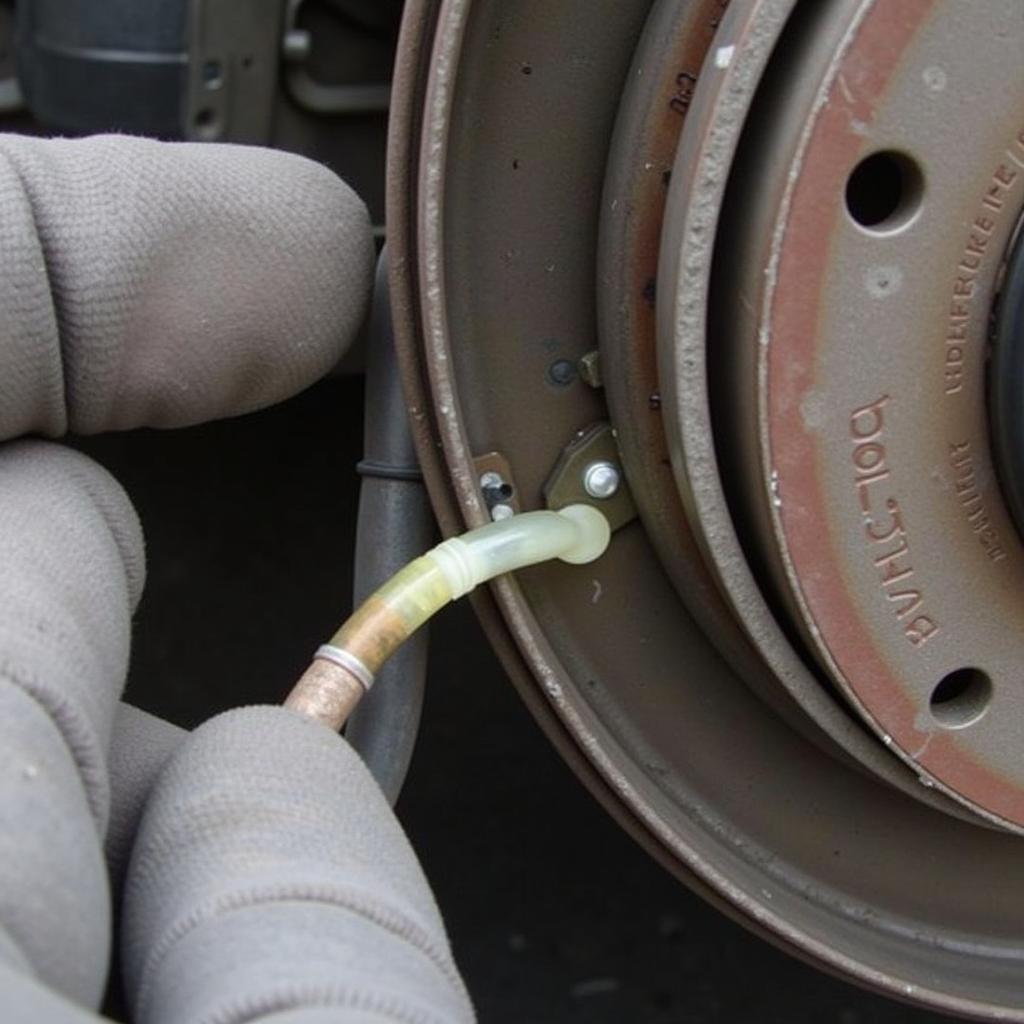 Brake Fluid Leak
Brake Fluid Leak
When to Seek Professional Help
While some causes of a Buick Lesabre brake warning light can be addressed with basic DIY maintenance, it’s crucial to remember that the braking system is critical for your safety. If you’re unsure about any aspect of brake repair or diagnosis, it’s always best to err on the side of caution and consult a qualified mechanic.
Remember, addressing brake issues promptly can save you from costly repairs and ensure your safety on the road.
FAQs about Buick Lesabre Brake Warning Light
Q: Can I drive my Buick Lesabre with the brake warning light on?
A: While it’s technically possible to drive a short distance with the brake warning light on, it’s highly discouraged. Doing so puts you and others at risk.
Q: How often should I replace my Buick Lesabre’s brake pads?
A: Brake pad lifespan varies depending on driving conditions and habits. It’s generally recommended to have them inspected every 12,000 miles and replaced as needed.
Q: How much does it cost to fix a Buick Lesabre brake warning light issue?
A: The repair cost depends on the underlying cause. A simple brake fluid top-up is inexpensive, while a brake caliper replacement can be significantly more expensive.

